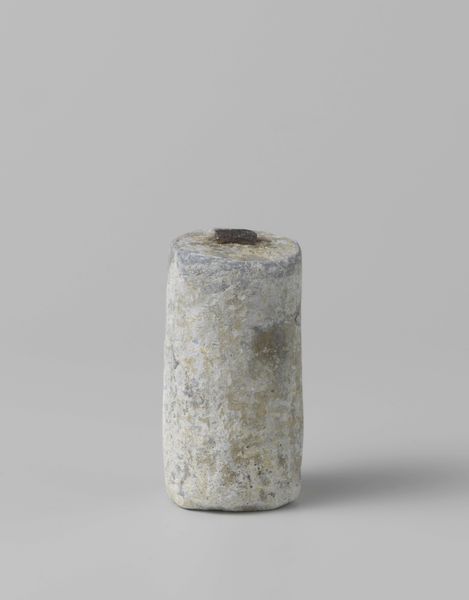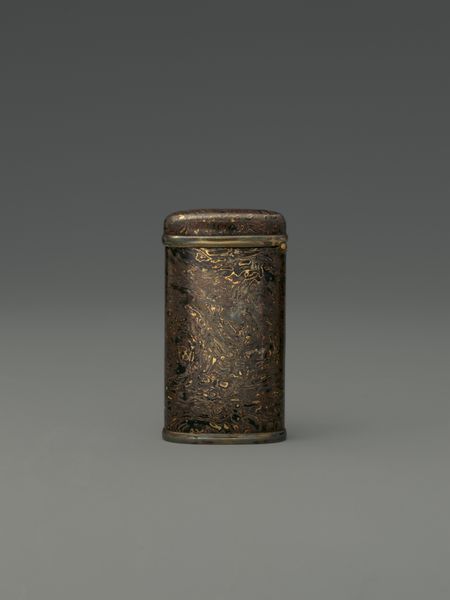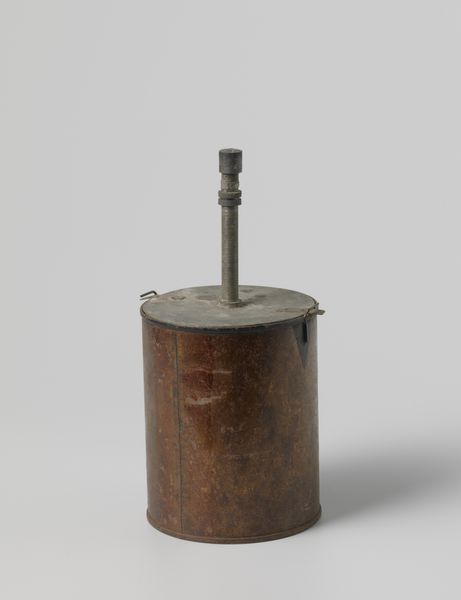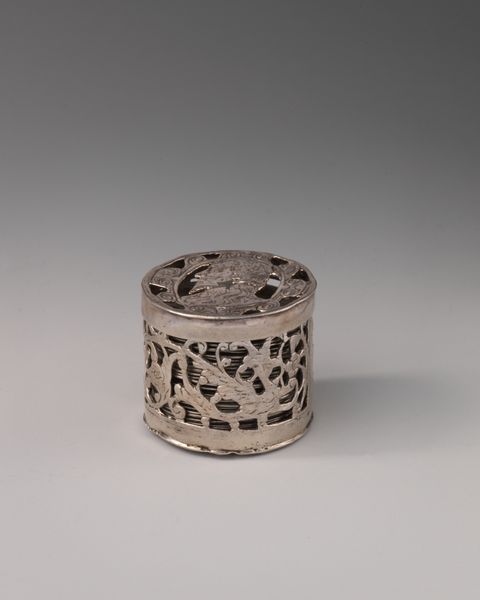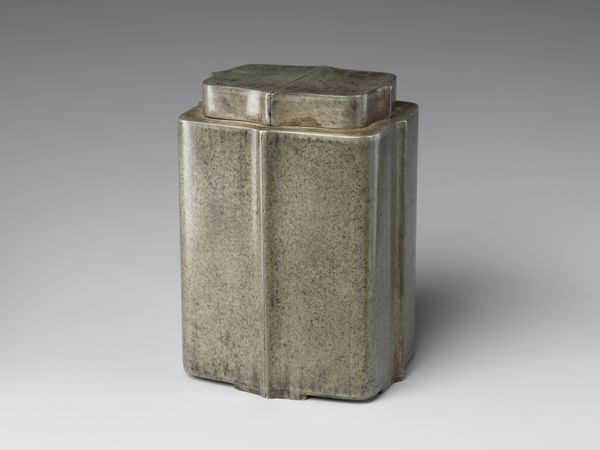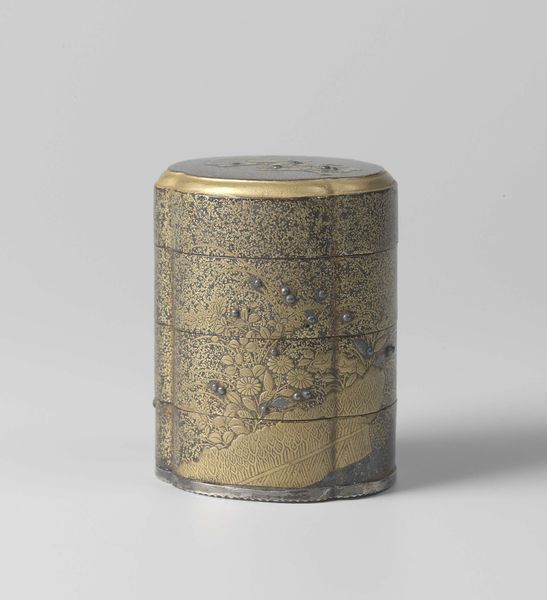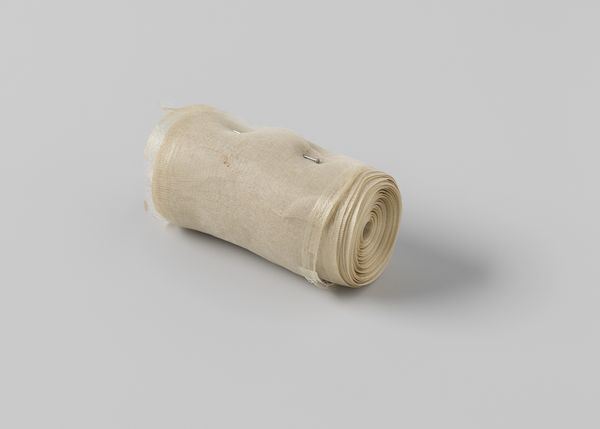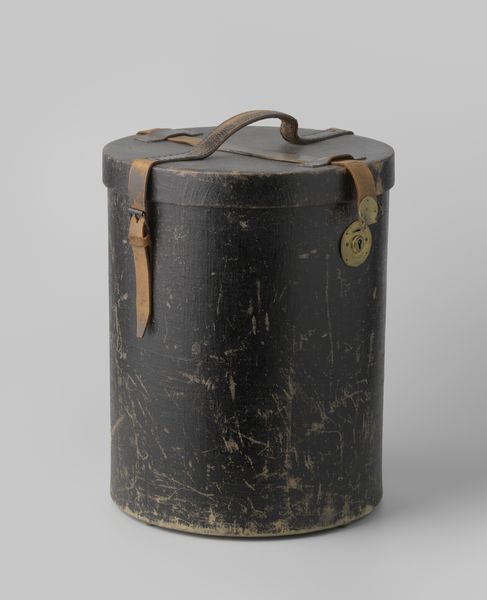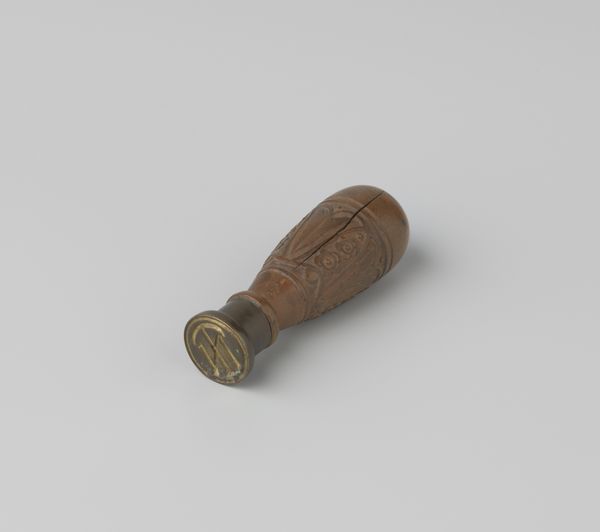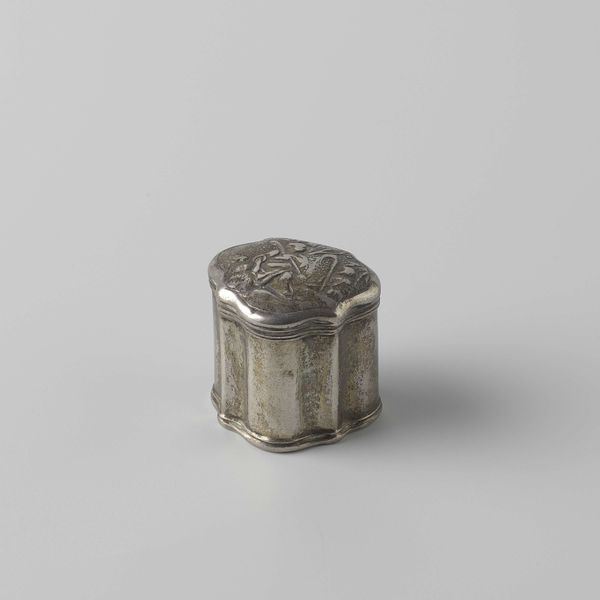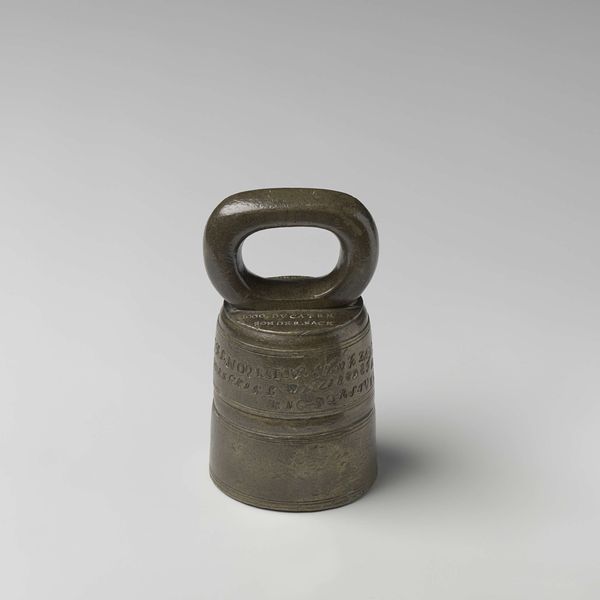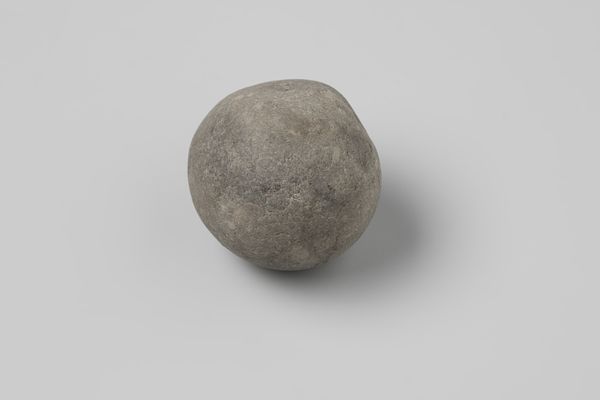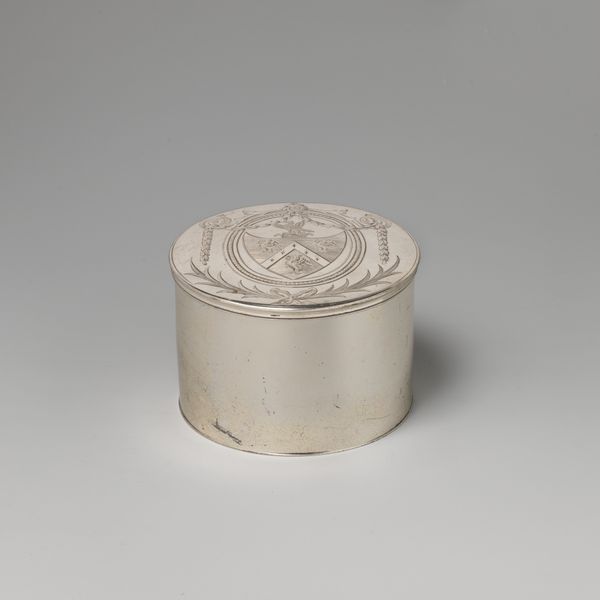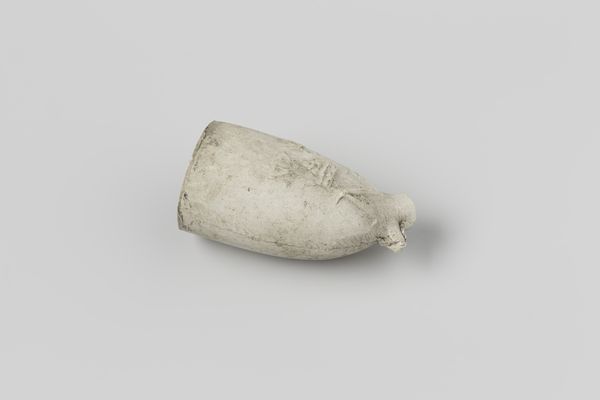
ceramic, sculpture
#
ceramic
#
stoneware
#
sculpture
#
ceramic
Dimensions: height 9.5 cm, diameter 5 cm, weight 1949 gr
Copyright: Rijks Museum: Open Domain
This clock and gunpowder horn was anonymously made, its date of creation lost to time. Consider this object as a relic of a past filled with military conflict and colonial expansion. It speaks to the historical context when gunpowder was a key element in warfare and societal control. As an object of utility, it transcends simple categorization, embodying the entanglement of time, violence, and perhaps even survival. The integration of a clock function into a tool of war provokes contemplation on the role of time in military strategy. This also touches upon the broader implications of timekeeping during an era defined by exploration, conquest, and the imposition of European dominance. What narratives remain untold when an object like this lacks a known maker, reminding us to reflect on the countless untold stories of individuals whose labor and lives were intertwined with instruments of conflict?
Comments
rijksmuseum over 2 years ago
⋮
This clock was originally intended as merchandise for sale or as a gift. It was hung up in the ‘Save House’ as the only means of providing a sense of time during the long, polar nights. On 3 December 1596, it froze. Barentsz and Van Heemskerck shoved a parting letter into the gunpowder horn when they left. Three centuries later, the horn was rediscovered with the letter still inside. The letter cannot be exhibited due to its fragility.
Join the conversation
Join millions of artists and users on Artera today and experience the ultimate creative platform.
